Each year over 5,000 patients in the
U.S. die waiting for a kidney transplant, while annually, nearly 2,700 kidneys
procured for transplantation are discarded.
There are currently no universal guidelines in the U.S. to recommend which kidneys should be used or rejected."This high discard rate is concerning especially given the worsening organ shortage in the U.S., but the factors contributing to this are poorly understood," explained lead investigator Sumit Mohan, MD, MPH, Assistant Professor of Medicine & Epidemiology at Columbia University Medical Center.
 "The most commonly cited reason for organ discard is organ quality, but
recent analyses by our group suggest that even kidneys of acceptable quality
are being discarded at an increasing rate."
Investigators have uncovered a "weekend effect" contributing to the
worsening availability of donor kidneys in the United States. They found that
kidneys that would normally be made available for transplantation were less
likely to be procured from donors over the weekend (89.5% on the weekend vs.
90.2% during the week).
Further, organs procured during the weekend were more than 20% more likely to
be discarded than kidneys procured on other days, although the discarded
kidneys were of higher quality on average than those discarded during the week,
according to a new report in Kidney International.
"The most commonly cited reason for organ discard is organ quality, but
recent analyses by our group suggest that even kidneys of acceptable quality
are being discarded at an increasing rate."
Investigators have uncovered a "weekend effect" contributing to the
worsening availability of donor kidneys in the United States. They found that
kidneys that would normally be made available for transplantation were less
likely to be procured from donors over the weekend (89.5% on the weekend vs.
90.2% during the week).
Further, organs procured during the weekend were more than 20% more likely to
be discarded than kidneys procured on other days, although the discarded
kidneys were of higher quality on average than those discarded during the week,
according to a new report in Kidney International.
 Investigators hypothesized that there was a significant degree of transplant
center-to-center variability, and analyzed whether the procurement and
utilization of deceased donor kidneys varied by day of the week - specifically,
whether it was different on weekends when compared to weekdays.
Using data from the U.S. Scientific Registry of Transplant Recipients, they
looked at records of more than 180,000 deceased donor kidneys recovered for
transplantation between 2000 and 2013. More than 30,000 of these kidneys were
discarded during this period.
Investigators hypothesized that there was a significant degree of transplant
center-to-center variability, and analyzed whether the procurement and
utilization of deceased donor kidneys varied by day of the week - specifically,
whether it was different on weekends when compared to weekdays.
Using data from the U.S. Scientific Registry of Transplant Recipients, they
looked at records of more than 180,000 deceased donor kidneys recovered for
transplantation between 2000 and 2013. More than 30,000 of these kidneys were
discarded during this period.
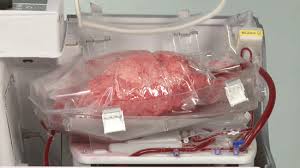 In addition to analyzing the impact of day of the week on donor kidney use or
discard, they collected data on geographic variations. They also measured
kidney quality using the Kidney Donor Profile Index (KDPI).
Their analysis demonstrated that kidneys procured on Friday and Saturday had a
29% and 25% higher probability of being discarded, respectively, which
persisted even after taking into account organ quality (21% and 22% higher odds
respectively).
In addition to analyzing the impact of day of the week on donor kidney use or
discard, they collected data on geographic variations. They also measured
kidney quality using the Kidney Donor Profile Index (KDPI).
Their analysis demonstrated that kidneys procured on Friday and Saturday had a
29% and 25% higher probability of being discarded, respectively, which
persisted even after taking into account organ quality (21% and 22% higher odds
respectively).
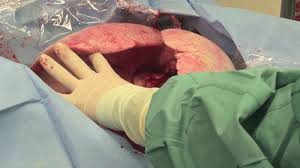 They also found considerable geographic variation in the proportion of
transplants that took place over the weekend: kidneys available for transplant
over the weekend were more likely to be used at larger transplant centers, be
shared without payback, and experienced shorter cold ischemia times.
Additionally, they observed an upward trend in the deceased donor discard rate
from 2000 to 2013, with the percentage of kidneys being discarded increasing
over time.
They also found considerable geographic variation in the proportion of
transplants that took place over the weekend: kidneys available for transplant
over the weekend were more likely to be used at larger transplant centers, be
shared without payback, and experienced shorter cold ischemia times.
Additionally, they observed an upward trend in the deceased donor discard rate
from 2000 to 2013, with the percentage of kidneys being discarded increasing
over time.
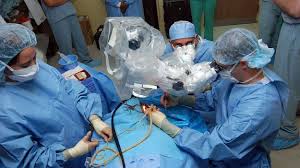 "Factors other than kidney quality appear to influence whether kidneys
will be used for transplantation. The results are of particular importance
given the growing number of kidneys from deceased donors that are discarded
every year, and the fact that preliminary data currently suggest the number of
kidney discards is increasing still further following the introduction of the
new Kidney Allocation System which was introduced in December 2014,"
emphasized Dr. Mohan.
"Our study underscores the need to identify and understand these factors.
Policies and strategies to lower discard rates and improve transplantation
outcomes are necessary to improve organ allocation and utilization."
"Factors other than kidney quality appear to influence whether kidneys
will be used for transplantation. The results are of particular importance
given the growing number of kidneys from deceased donors that are discarded
every year, and the fact that preliminary data currently suggest the number of
kidney discards is increasing still further following the introduction of the
new Kidney Allocation System which was introduced in December 2014,"
emphasized Dr. Mohan.
"Our study underscores the need to identify and understand these factors.
Policies and strategies to lower discard rates and improve transplantation
outcomes are necessary to improve organ allocation and utilization."
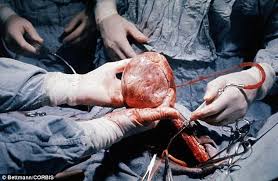 "A better understanding of which components of health care delivery are
driving the decision to discard kidneys is needed to determine where
intensification of resources is warranted," commented Sunita K. Singh, MD,
MSc, and S. Joseph Kim, MD, PhD, MHS, of the Division of Nephrology and the
Kidney Transplant Program, Toronto General Hospital, noted experts in the
field.
They recommend comparing these data with the results in transplant centers
outside the U.S. and point out that examples from the non-transplant literature
(such as trauma services) may lead the way to establishing the same level of
care 24 hours a day, seven days a week, to mitigate the "weekend
effect."
"A better understanding of which components of health care delivery are
driving the decision to discard kidneys is needed to determine where
intensification of resources is warranted," commented Sunita K. Singh, MD,
MSc, and S. Joseph Kim, MD, PhD, MHS, of the Division of Nephrology and the
Kidney Transplant Program, Toronto General Hospital, noted experts in the
field.
They recommend comparing these data with the results in transplant centers
outside the U.S. and point out that examples from the non-transplant literature
(such as trauma services) may lead the way to establishing the same level of
care 24 hours a day, seven days a week, to mitigate the "weekend
effect."
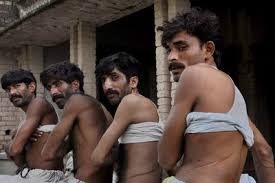 "Kidney transplantation improves life expectancy and is less costly to the
health care system than chronic dialysis, so a careful re-evaluation of
resource allocation on weekdays versus weekends in transplant centers is needed
to ensure that the benefits of transplantation is maximized for the patients
who need this life-saving therapy," they concluded.
"Dr Mohan and colleagues should be credited for having pointed out this
potential problem," added Detlef O. Schlondorff, MD, Editor-in-Chief of
Kidney International and Visiting Professor of Medicine at Mount Sinai Medical
Center, New York.
"Kidney transplantation improves life expectancy and is less costly to the
health care system than chronic dialysis, so a careful re-evaluation of
resource allocation on weekdays versus weekends in transplant centers is needed
to ensure that the benefits of transplantation is maximized for the patients
who need this life-saving therapy," they concluded.
"Dr Mohan and colleagues should be credited for having pointed out this
potential problem," added Detlef O. Schlondorff, MD, Editor-in-Chief of
Kidney International and Visiting Professor of Medicine at Mount Sinai Medical
Center, New York.
There are currently no universal guidelines in the U.S. to recommend which kidneys should be used or rejected."This high discard rate is concerning especially given the worsening organ shortage in the U.S., but the factors contributing to this are poorly understood," explained lead investigator Sumit Mohan, MD, MPH, Assistant Professor of Medicine & Epidemiology at Columbia University Medical Center.
0 comments:
Post a Comment
Please insert your comments here